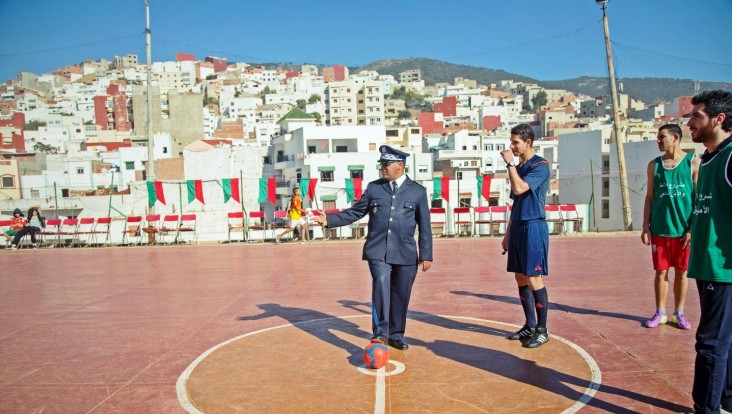Speeches Shim

Clear channels of communication between the police and citizens are vital building blocks for any democratic society.
A USAID participatory youth assessment conducted in 2015 in Tangier and Tetouan revealed that youth’s sense of insecurity in their neighborhoods could be attributed to a lack of positive police presence. In an effort to bolster democratic participation, the Government of Morocco has engaged in a series of reforms that prioritize direct engagement between police, local authorities, and citizens to better respond to their needs and improve the force’s overall efficiency.
USAID RESPONSE
Community policing is both a philosophy and an organizational strategy that emphasizes partnership and collaboration between police and the communities that they serve with the objective of identifying and jointly responding to problems of crime, disorder, and fear of victimization. USAID supports the Kingdom of Morocco’s reform efforts through a community policing pilot project in designated marginalized neighborhoods in Tangier and Tetouan. The project works in three strategic areas:
FACTS & FIGURES
- AMEX International
- Tetra Tech
- STRENGTHENING THE CAPACITY of community-based associations to assist in resolving neighborhood crime and safety issues.
- TRAINING AND TECHNICAL ASSISTANCE to commanders and line personnel of the Tangier and Tetouan police forces.
- BUILDING TRUST AND COLLABORATION between community actors through facilitated joint activities.
RESULTS ACHIEVED
Previously, residents in these target neighborhoods did not openly discuss their safety and security concerns. Through COPA, these same individuals have looked past their differences to join together, learn new skills, and contribute to improving the security in their communities. From organizing soccer tournaments, training sessions on neighborhood clean-up days, and even school field trips to the local police station, USAID is building the skills of the police and residents to help them work together on addressing safety issues. To date, more than 16,000 people have been reached by COPA’s activities and more than 1,000 community leaders have been trained in facilitating dialogue between residents and local authorities and in organizing inclusion-focused community-building activities. Half of COPA participants are women and majority are under 35 years old.

Comment
Make a general inquiry or suggest an improvement.